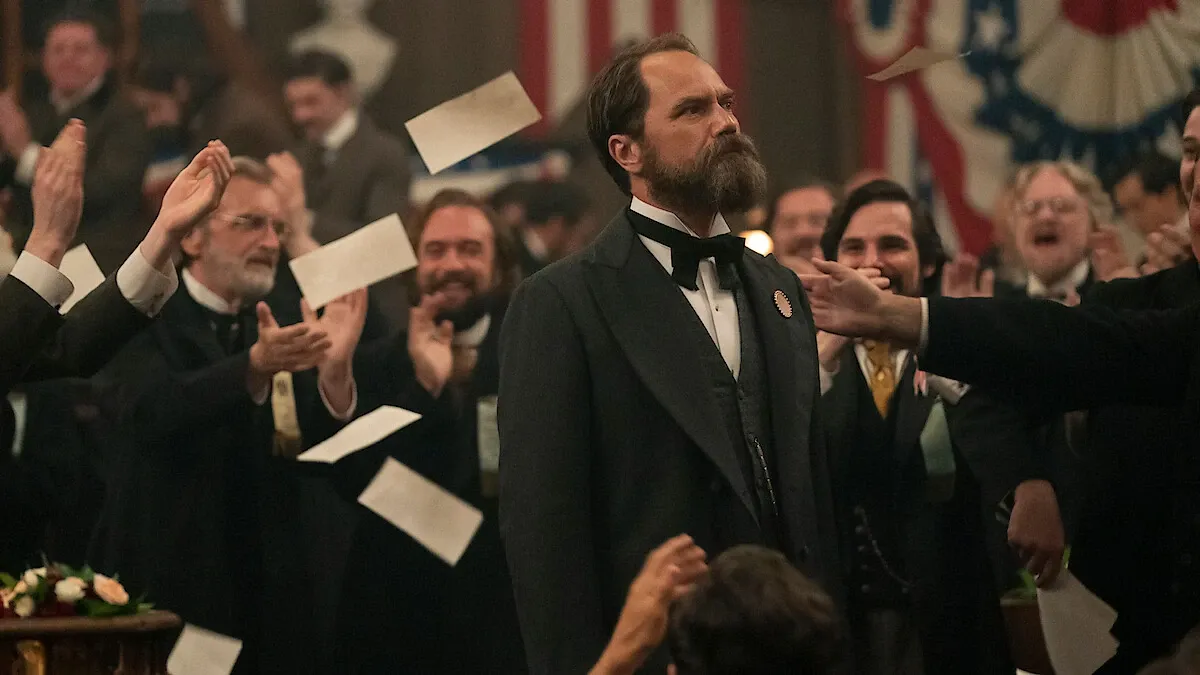Produced by Jon Favreau and narrated by David Attenborough, Prehistoric Planet is probably as close as we’ll ever get to the dinosaurs in our lifetime.
In that lies both its success and the occasional stumble. When the series succeeds, it soars. As a vision of life on our planet 66 million years ago, it is momentous.
Made real with impeccable artistry and scientific vision, the presentation is astonishing. It will make children fall in love with these beasts all over again.
On the other hand, it is also an exercise in anthropomorphism. The attribution of human characteristics to animals we don’t, and can’t, understand.
While the science behind it is thorough, many of its singular moments are jarring in their attempts to create a human connection across time and space. Infant dinosaurs cry out for their mothers. Mammoth beasts stare wide-eyed into the camera with intelligent – and thoroughly artificial – eyes.
Imagine, it asks, how their life mirrored ours.
This approach is understandable, even if it’s not altogether successful. Prehistoric Planet, as other Attenborough works, needs to reach the widest audience possible. Most humans don’t care about animals, living or dead, on a purely scientific level. They need an emotional connection. A bridge between man and beast.
Which is what the series delivers. Each episode features a specific location and species, each with stories of its own. These contained vignettes range from scavenging for food to surviving a hostile climate. Violence gives way to new life, though sometimes with tragic consequences. The grand tapestry of a planet barely resembling ours is a sweeping vista both hypnotic and terrifying.
Viewed as an exercise in scientific romanticism, Prehistoric Planet is a rousing success. While the science behind the show is presented with clarity, the episodes themselves aim for the emotional rather than educational. Some elements impress with newfound knowledge, but it’s clear that, for now, we might have reached the limits of what we can understand of this world gone by.
But when the spectacle is this grand, does it matter? What Favreau and crew have created is nothing short of a miracle. A time capsule that captures the imagination in the way that Steven Spielberg’s Jurassic Park did thirty years ago. Every episode, I found myself having to repeat the simple realization that none of this is real. It’s all visual trickery of computer graphics and smart cinematography.
As far as we know, this is how things looked like. That, naturally, will change if we learn more. Just a few short decades ago, velociraptors looked completely different in the public consciousness.
It is in that time capsule nature that Prehistoric Planet is so vital. Not just a moment of the ancient past, it is also a mirror of our knowledge in this time. In a generation, it will hold value in everything it got wrong. We will look back and marvel at how much and how little we know all at once.
And in Attenborough, Prehistoric Planet finds a seminal voice of scientific oration without whom none of this would work. His intelligent and compassionate narration is infectious. Like other great communicators of science, Attenborough bridges the gap to the unknown in our living rooms.
By the time Prehistoric Planet ends, you’ll be ready for even more. This only feels like the beginning. A display of what’s possible with all the technology we have at hand.
But it does raise a melancholy realization. How long before we need this same technology to recreate the animals we have already shared on the planet within our lifetime?












